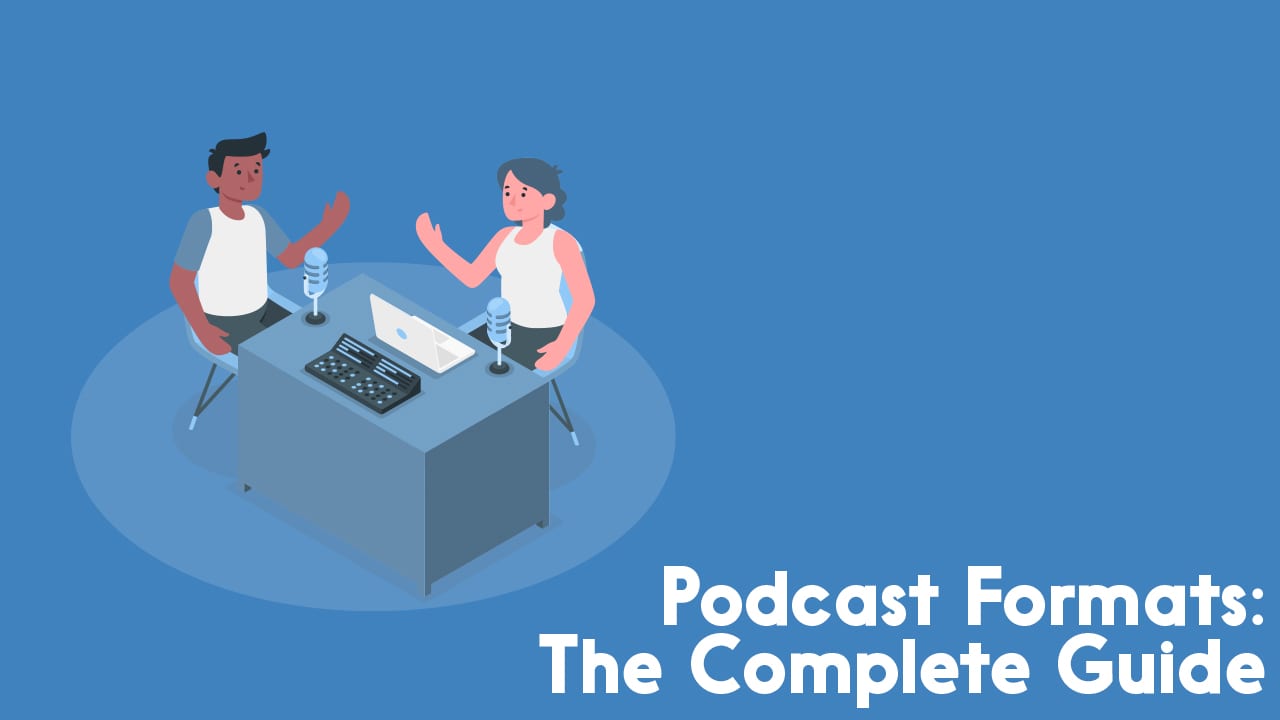Data Suggests 43% Of New Podcasters Are Planning to Fly Solo
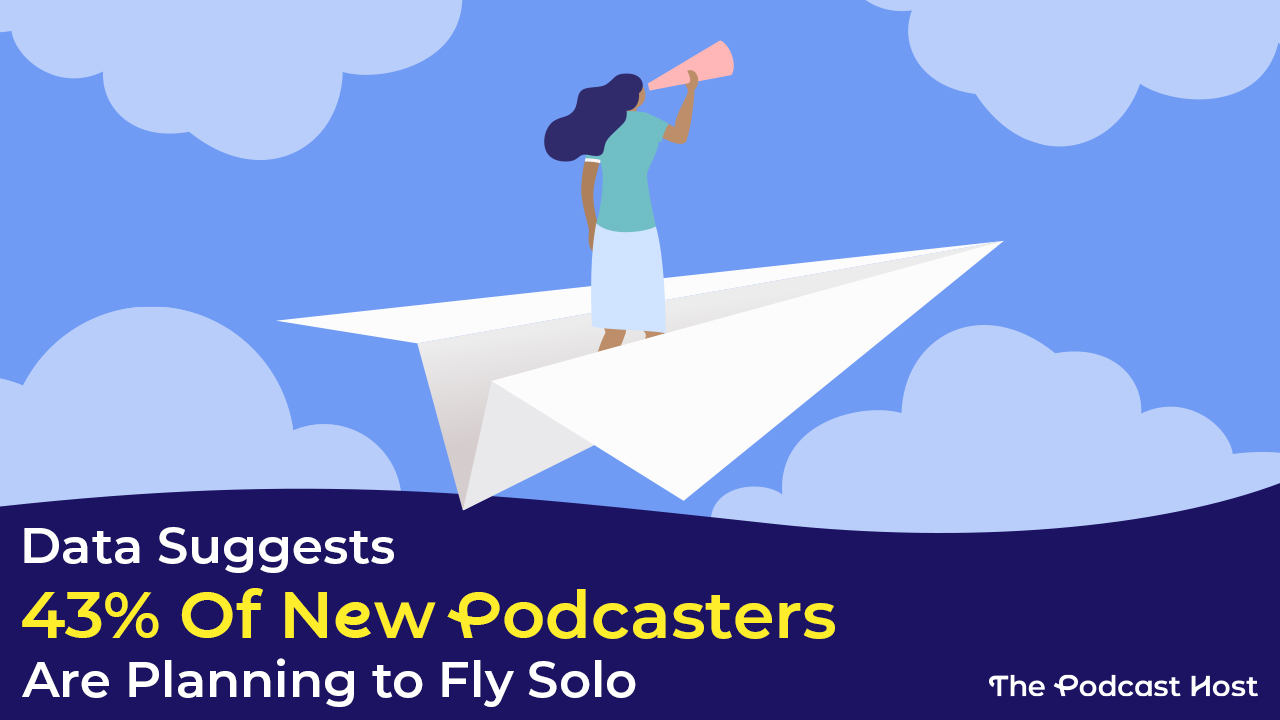
When you’re planning your podcast, there are a lot of things to consider. The format of your show – that is, whether you choose solo podcasting, co-hosting, interview style, or roundtable – is just one of them.
That’s why we created a personalised podcast planner tool to help new podcasters make these kinds of decisions. Amazingly, the tool recently hit the 1,500-user mark. We looked at the big data to see if there were any clear trends amongst new podcasters, and we weren’t disappointed.
There was one real stand-out from the data. 43% of our 1,500 respondents told us they’d rather host a solo show than create content with other people.
But why is this such a clear trend in podcasting right now and most importantly – why should you care?
Why Is This Interesting?
Statistically speaking, the sheer number of people choosing solo shows over other formats is worth remarking on in itself. Almost half of all respondents chose solo shows over the other three format options. The second choice (interview format) was preferred by just 29% respondents.
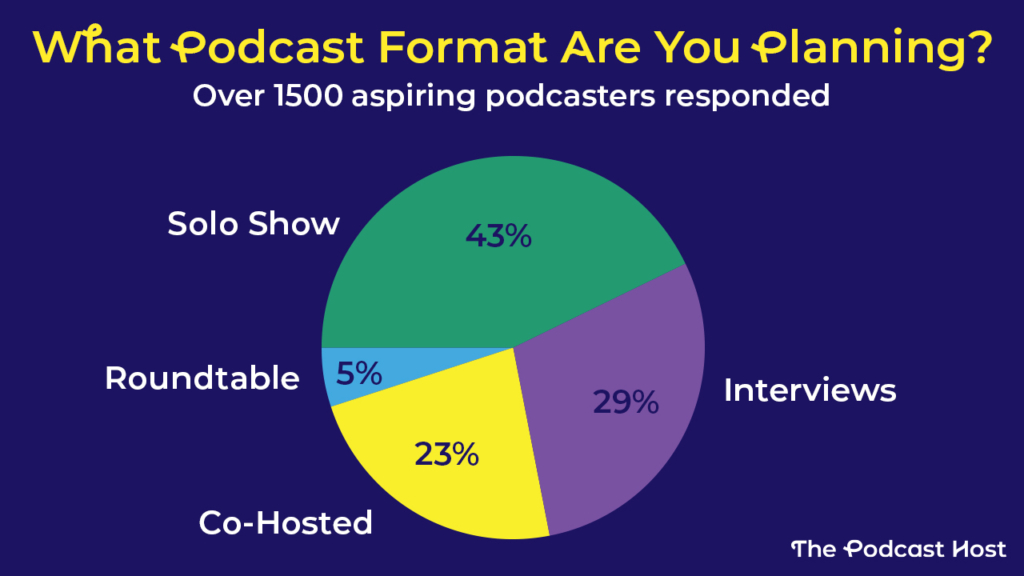
But what’s really interesting about this new data is that running a solo show certainly isn’t the most obvious choice for new podcasters. In fact, it’s the most intimidating format a new podcaster could probably choose.
Getting over the feeling that you’re “talking to yourself” can be a major challenge for new creators. And typically, a lot of podcasters see the interview format as the quick and easy route to success. The idea is that you “borrow” someone else’s expertise, so they bring the knowledge and value. Then, they promote the episode with their audience which can help you grow your own. Granted, there’s a lot more to it than that, but you can see why this would make the interview format appealing.
Added to this, remote recording tools have never been better. Nowadays, it’s so easy to record shows with guests and co-hosts all over the world. It’s not just easy either – it will also sound as good as if you were in the same room.
So why are so many podcasters choosing to fly solo rather than create shows with other people?
Why Are Creators Choosing Solo Podcasting?
There are a whole number of reasons why someone might choose to run their show alone instead of with other people. For a start, maybe they just prefer to do things alone.
The number of people creating podcasts during the pandemic grew exponentially, as people had more time to create content as well as consume it. It’s possible that podcasters have just gotten used to working alone during lockdown. And now, in a post-pandemic world, maybe we’re all just a bit tired of arranging calls with people all the time. Zoom fatigue is real!
There are loads of benefits to flying solo with your podcast too. For example, working alone means you build your reputation as an authority in your niche, you own your content 100% (including any income you make through it), and you have all the creative autonomy you could want.
It also means you don’t need to rely on anyone but yourself for scheduling. If life gets in the way of your podcasting slot, you can always record your show at 2 am, and no one will know the difference.
What the Data Suggests
Assumptions aside, there are a couple more insights from the data that might tell us why so many podcasters are choosing solo shows over working with others. Here’s what they are:
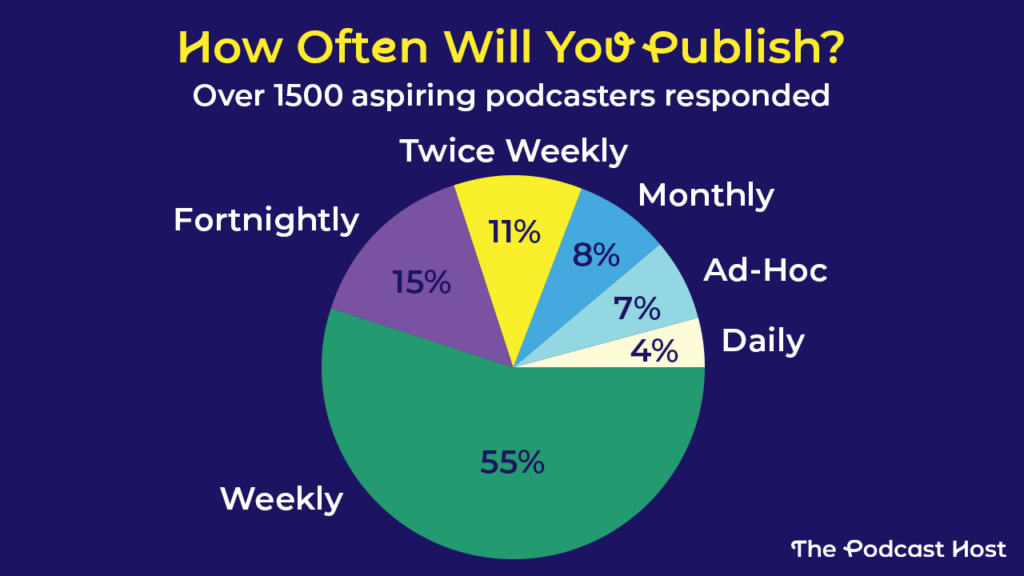
- They want to run a weekly show. A massive 55% of respondents told us they’re planning a weekly podcast show. To give you an idea of just how overwhelming that majority is, the second-most-popular choice was fortnightly, at just 15%. And realistically, planning and managing a weekly show with other people isn’t going to be the easy option. For example, if you were opting for an interview or roundtable format, researching and booking guests every week could become a logistical nightmare that’s difficult to maintain. For more on this, check out our full guide to podcast release schedules.
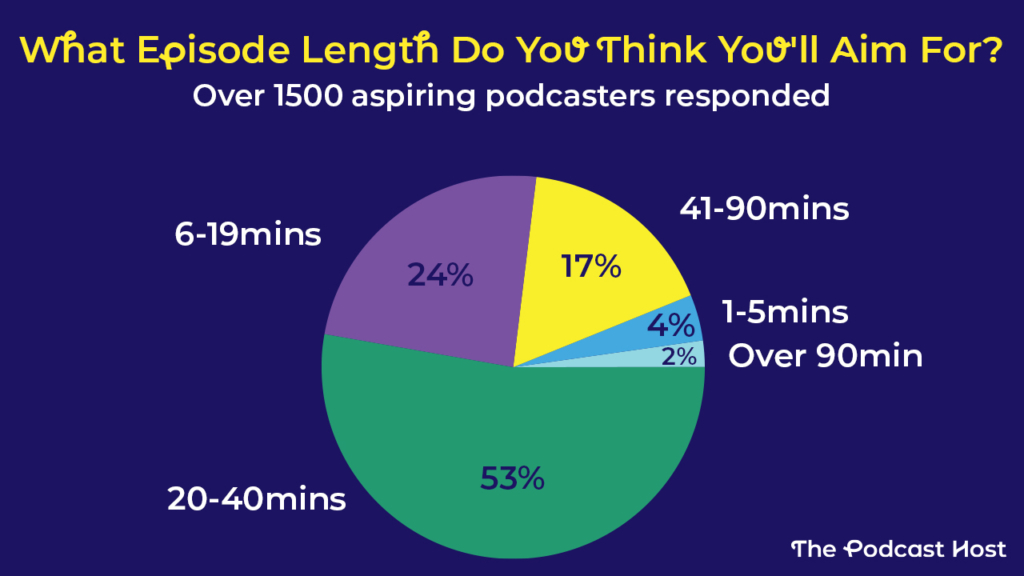
- They want to keep their shows under 40 mins. More than half (53%) of the podcasters who responded to our census also told us they want to keep their episodes between 20-40 minutes long. The second most popular category was short shows of less than 20 minutes (24%). While it’s not impossible to produce interviews, co-hosted shows and roundtables under 40 minutes, these other formats naturally tend to be longer because there are more people talking. Here’s our full guide on how long a podcast should ideally be, for a deeper dive on that front.
Should You Switch to Solo Podcasting?
While there are clearly lots of benefits to flying solo with your podcast, that doesn’t mean you should abandon your current format to start following this trend. Ultimately, you just want to run a podcast in a format that works for you – there’s no right or wrong answer here.
But there’s also nothing that says you need to stick to a consistent format, either.
Some podcasters mix things up by doing the odd show that brings in a new format. This can be a good way to test out how this feels and if it resonates with your target audience.
If you’re in the very early days of planning your podcast, our free podcast planner will help you get started. Invest 5 minutes answering simple questions and get yourself a personalised step-by-step plan to launch your podcast that will save you days. No guesswork, and no browser tab overload. All you need is an idea and the will to bring it to life!
